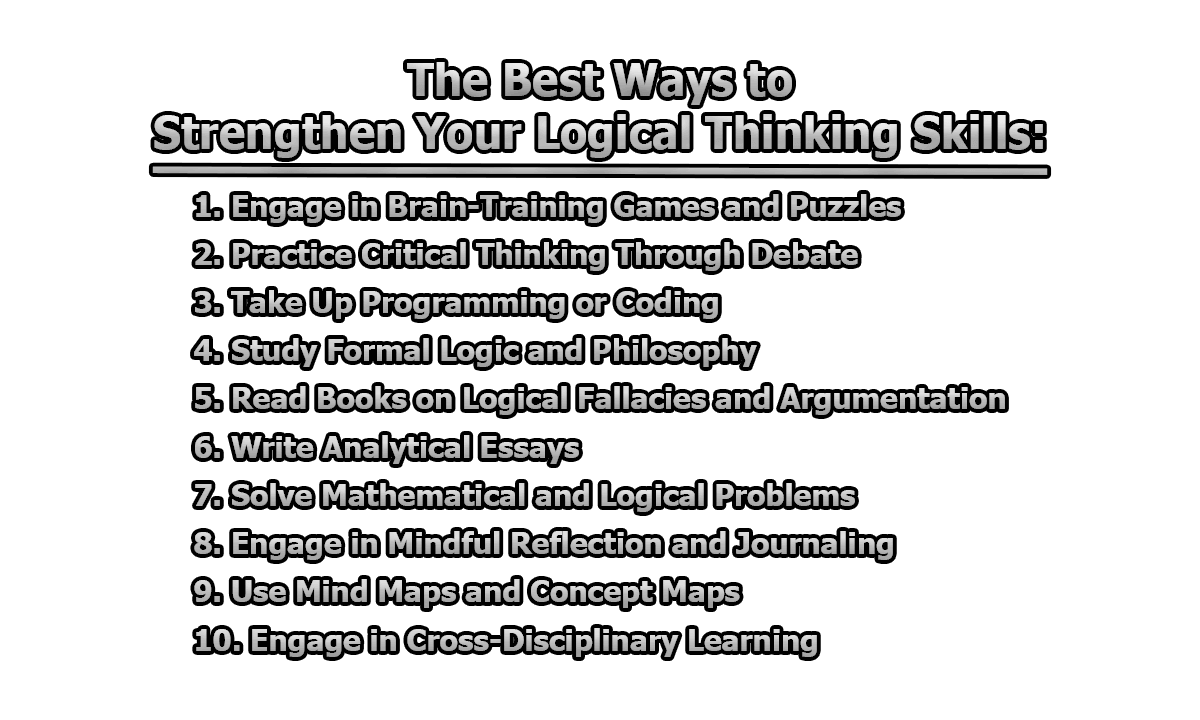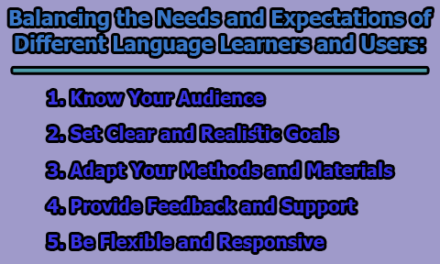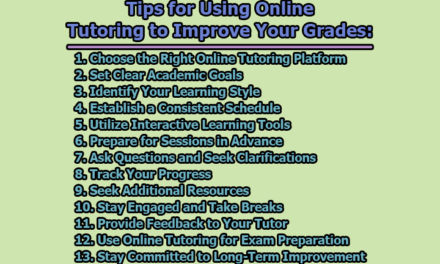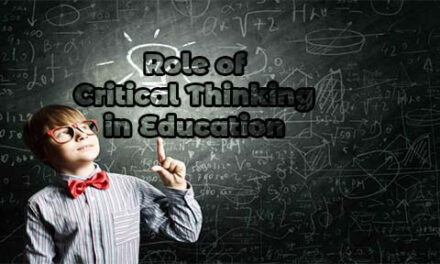The Best Ways to Strengthen Your Logical Thinking Skills:
Logical thinking is the foundation of problem-solving, decision-making, and effective reasoning. Whether in academic settings, professional environments, or everyday life, strong logical skills help individuals evaluate situations clearly and respond rationally. Fortunately, logical thinking is not an innate gift limited to a few—it can be cultivated through consistent practice and targeted strategies. Below are the best ways to strengthen your logical thinking skills.
1. Engage in Brain-Training Games and Puzzles: One of the most enjoyable and effective ways to strengthen logical thinking is through brain-training games and puzzles. Activities like Sudoku, chess, crossword puzzles, and logic riddles are not only mentally stimulating but also foster important cognitive abilities such as pattern recognition, strategic planning, and working memory. For example, chess players must anticipate multiple potential outcomes and devise long-term strategies—skills that parallel formal logical reasoning.
Scientific research supports the efficacy of these mental exercises. In a study published in Nature, researchers found that training on working memory tasks could improve fluid intelligence—the capacity to reason and solve new problems independently of previously acquired knowledge. This is a critical component of logical thinking, especially when tackling unfamiliar scenarios. These findings suggest that consistent engagement with mentally challenging games can lead to measurable cognitive improvements.
2. Practice Critical Thinking Through Debate: Engaging in debate is a powerful method for enhancing logical thinking. Whether in a formal setting such as a classroom or in informal discussions, debating forces individuals to articulate ideas clearly, evaluate opposing viewpoints, and construct well-founded arguments. The process of defending a position while anticipating counterarguments promotes a deeper understanding of the subject matter and strengthens analytical reasoning skills.
Debate requires identifying assumptions, weighing evidence, distinguishing between correlation and causation, and exposing logical fallacies. These are essential components of logical reasoning. Studies in educational contexts have shown that students who participate in debate programs often demonstrate superior critical thinking skills compared to their peers. This is largely due to the mental rigor required to form coherent arguments and respond thoughtfully under pressure.
3. Take Up Programming or Coding: Learning to program is another highly effective way to sharpen logical thinking. At its core, programming involves breaking down complex problems into a series of logical steps that a computer can execute. This structured problem-solving process mirrors the logic used in deductive reasoning. For example, writing a function in Python to sort data or troubleshoot an error requires both analytical thinking and precise logic.
Coding also teaches the concept of “if-then” conditions, loops, and algorithms—all of which rely on logical rules. According to research, students exposed to computer programming develop enhanced metacognitive and cognitive skills. These include the ability to plan, monitor, and evaluate their own thinking processes—skills that directly contribute to logical reasoning. As such, coding is not only a technical skill but also a robust cognitive tool for improving one’s logical faculties.
4. Study Formal Logic and Philosophy: Studying formal logic and philosophy is a direct approach to understanding the principles of sound reasoning. Logic courses teach individuals how to structure arguments, evaluate the validity of claims, and identify logical fallacies such as circular reasoning, false dilemmas, or ad hominem attacks. Philosophy, particularly in branches like epistemology and ethics, demands rigorous analysis and the disciplined application of reason to abstract ideas.
Academic research supports this connection. A well-cited study by Nisbett et al. (1987) demonstrated that formal training in logic and statistical reasoning enhances individuals’ abilities to think critically across domains. Students trained in philosophical reasoning were better at avoiding common cognitive biases and more skilled in transferring logical reasoning to novel problems. Therefore, even a basic course in logic can provide a robust foundation for lifelong logical competence.
5. Read Books on Logical Fallacies and Argumentation: An excellent way to refine logical thinking is to familiarize oneself with common reasoning errors and argumentation techniques. Books that focus on cognitive biases and fallacies—such as Thinking, Fast and Slow by Daniel Kahneman or The Art of Reasoning by David Kelley—help readers recognize flawed logic in everyday situations. Learning to identify fallacies like straw man, slippery slope, or hasty generalization enhances critical awareness and analytical rigor.
Kahneman’s work is especially influential, showing how human reasoning is often divided between intuitive (fast) and deliberative (slow) systems. His insights reveal that logical thinking often requires consciously overriding instinctive responses to analyze a situation rationally. Regular exposure to such literature cultivates a mindset that questions assumptions, verifies evidence, and applies structured reasoning—skills essential in both personal and professional contexts.
6. Write Analytical Essays: Writing analytical essays compels individuals to organize their thoughts, evaluate evidence, and present structured arguments—all of which develop logical thinking. Unlike casual conversation, essay writing demands coherence, clarity, and justification. Constructing a well-supported thesis requires gathering facts, identifying relationships, and drawing conclusions based on logic rather than emotion or intuition.
Educational research supports this practice. Klein (1999) found that students who engaged in argumentative writing exhibited greater development in higher-order thinking skills. Writing promotes metacognition—the awareness of one’s own thought processes—which is a critical element in logical reasoning. Whether in academic essays, opinion pieces, or reflective journals, writing forces the writer to clarify ideas and defend conclusions with sound logic and evidence.
7. Solve Mathematical and Logical Problems: Engaging in mathematical problem-solving is one of the most direct ways to improve logical thinking. Mathematics trains the brain to identify patterns, apply formulas, and draw conclusions based on clear principles. It develops deductive reasoning—the ability to derive specific conclusions from general rules—which is fundamental to logical thought.
Research consistently links mathematical skills with logical proficiency. For example, Dowker (2005) highlights how arithmetic and problem-solving activities require the integration of working memory, attention, and reasoning—cognitive functions also essential in logic. Moreover, math-related tasks encourage individuals to follow structured steps, check assumptions, and validate results, all of which are cornerstones of logical analysis.
8. Engage in Mindful Reflection and Journaling: Mindful reflection and journaling cultivate logical thinking by promoting self-awareness and intentional analysis of thoughts and decisions. When individuals reflect on their reasoning—particularly after making a mistake—they begin to identify patterns in their thought processes, recognize biases, and adjust future behaviors.
Donald Schön (1983) emphasized the role of reflective practice in professions requiring complex problem-solving. He argued that reflection enables professionals to “think in action” and “reflect on action,” both of which sharpen reasoning and judgment. Journaling supports this by offering a structured way to explore ideas, assess alternatives, and track personal cognitive development over time.
9. Use Mind Maps and Concept Maps: Mind maps and concept maps are visual tools that help organize and connect ideas logically. They assist in breaking complex problems into smaller, more manageable components while showing how concepts are interrelated. This spatial organization helps clarify thought processes and reveal gaps or inconsistencies in reasoning.
Nesbit and Adesope (2006) conducted a meta-analysis of multiple studies and concluded that concept mapping significantly improves comprehension and retention. These visual aids foster higher-order thinking by encouraging users to group related ideas, establish hierarchies, and trace cause-effect relationships—all critical to logical reasoning. They’re especially useful in planning essays, presentations, or solving multifaceted problems.
10. Engage in Cross-Disciplinary Learning: Studying diverse subjects like science, philosophy, literature, and economics fosters transferable reasoning skills. Different disciplines offer varied ways of thinking—scientific method, textual analysis, statistical reasoning, and ethical logic—broadening the individual’s capacity for structured thought.
Perkins and Salomon (1989) emphasized the concept of “transfer of learning,” arguing that the ability to apply reasoning skills across contexts is a hallmark of true intelligence. Exposure to diverse disciplines enhances flexible thinking, making it easier to adapt logical reasoning to new challenges. This cross-pollination of knowledge fosters not only creativity but also logical rigor.
It is apparent that logical thinking is not merely a trait of mathematicians or scientists—it’s a skill that can be refined across disciplines and life situations. By combining mental exercises, reading, writing, and active reflection, you can strengthen your ability to think clearly, argue persuasively, and make reasoned decisions. Start with a few of these techniques and build them into your daily routine to witness gradual but powerful improvements in your logical faculties.
Frequently Asked Questions (FAQs):
What is logical thinking, and why is it important?
Logical thinking is the process of using reasoning consistently and systematically to arrive at a conclusion. It involves analyzing facts, recognizing patterns, drawing inferences, and solving problems based on evidence rather than emotions or assumptions. Logical thinking helps in making rational decisions, identifying false claims, and evaluating arguments effectively.
It’s vital in everyday life and professional environments because it enhances clarity of thought, helps in avoiding cognitive biases, and ensures actions are based on reason rather than impulse. Whether you’re solving a math problem, managing a project, or resolving a conflict, logical thinking provides the structure for sound judgment and effective solutions.
Can logical thinking be improved, or is it an innate ability?
While some individuals may have a natural inclination toward structured reasoning, logical thinking is a skill that can be learned and strengthened over time. Like physical fitness, it improves with regular practice and the right cognitive exercises.
Research has shown that engaging in tasks that challenge your reasoning abilities—such as problem-solving games, reflective writing, and formal training in logic—can significantly enhance your capacity to think logically, regardless of your starting point. The brain has neuroplasticity, which means it can form new connections when challenged with new intellectual tasks.
What are the most effective activities to strengthen logical thinking?
Numerous activities can enhance logical thinking, including:
- Playing strategy games like chess, Go, or Sudoku that require forward-thinking and pattern recognition.
- Solving mathematical and logical puzzles, which develop deductive reasoning.
- Engaging in debates or structured discussions to analyze viewpoints and construct valid arguments.
- Learning programming, which teaches systematic problem-solving.
- Writing analytical essays to develop coherent reasoning and evidence-based conclusions.
- Studying formal logic through books or academic courses to understand logical structures and fallacies.
Each activity trains different aspects of logic—from computational reasoning to argumentative structure—making them effective and complementary.
How does learning to code help improve logical thinking?
Programming involves writing instructions that a computer can follow. This requires you to:
- Break problems down into smaller, manageable parts
- Use if-then logic and loops to control program behavior
- Troubleshoot errors logically using testing and debugging methods
This process mirrors the steps of logical deduction and promotes algorithmic thinking. Coding enhances your ability to follow cause-and-effect relationships and builds discipline in how you approach complex problems—two critical components of logical thought.
Moreover, coding languages like Python or JavaScript can be learned without prior experience and are now widely accessible through free platforms like Codecademy, Khan Academy, and MIT OpenCourseWare.
Is studying philosophy or formal logic really helpful for practical reasoning?
Yes. Philosophy and logic teach you how to think, not what to think. Courses in logic introduce you to valid argument forms, logical symbols, and formal systems of reasoning. Philosophy teaches you to challenge assumptions, question the nature of knowledge, and analyze complex ethical or metaphysical problems.
These subjects improve your ability to detect flawed reasoning, identify logical fallacies, and evaluate claims objectively—skills that are invaluable in legal reasoning, policy analysis, business strategy, and everyday decision-making.
Are there recommended books to improve logical thinking?
Yes, several excellent books help develop logical thinking skills:
- Thinking, Fast and Slow by Daniel Kahneman – explains the two systems of thought: fast, intuitive thinking and slow, deliberate reasoning.
- The Art of Reasoning by David Kelley – offers a structured approach to argument construction and logical analysis.
- How to Win Every Argument by Madsen Pirie – explores logical fallacies with wit and real-world examples.
- Logic: A Very Short Introduction by Graham Priest – a concise introduction to formal logic and symbolic reasoning.
Reading such books improves your ability to recognize sound logic, avoid common fallacies, and articulate arguments with clarity.
How long does it take to improve logical thinking?
Improvement depends on consistency, not just intensity. Practicing logical reasoning activities for 15–30 minutes a day can yield visible results within a few weeks. Activities such as puzzle-solving, writing journal entries, or reflecting on arguments and decisions can help train your mind to think more analytically.
For more significant cognitive change, such as mastering formal logic or learning to code, it may take several months of steady practice. However, the benefits are cumulative—the more you practice, the better and faster your reasoning becomes.
How does writing help with logical thinking?
Writing, especially analytical or argumentative writing, helps structure your thoughts. When you write:
- You must develop a clear thesis
- Gather and evaluate evidence
- Connect points logically
- Address counterarguments
This forces your brain to reflect on each step of reasoning, promoting what psychologists call metacognition—thinking about thinking. Regular writing exercises improve not just communication skills but also your ability to reason clearly, detect inconsistencies, and refine your conclusions.
Can children or teenagers be taught logical thinking skills?
Absolutely. In fact, introducing logic-based activities early in life can have long-term benefits. Age-appropriate activities include:
- Puzzle games and LEGO kits for younger children
- Debate clubs and philosophy discussions for teens
- Learning coding through fun platforms like Scratch or Tynker
Critical thinking skills, including logic, are now being integrated into curricula around the world because they build intellectual resilience and independent thinking from a young age.
How does logical thinking help in my career?
Logical thinking is a top skill employers look for across industries. It helps you:
- Solve problems methodically
- Make data-driven decisions
- Communicate arguments clearly
- Identify risks and anticipate consequences
Fields such as law, engineering, business, medicine, and computer science especially value logical reasoning. Even in creative industries, logic helps in structuring narratives, planning campaigns, and evaluating audience responses.
In short, logical thinking gives you a strategic advantage in both workplace performance and career development.
References:
- Dowker, A. (2005). Individual differences in arithmetic: Implications for psychology, neuroscience, and education. Psychology Press.
- Mitchell, G. R. (2000). Simulated Public Argument as a Pedagogical Play on Worlds. Argumentation and Advocacy, 36(3), 134–150. https://doi.org/10.1080/00028533.2000.11951644
- Jaeggi, S. M., Buschkuehl, M., Jonides, J., & Perrig, W. J. (2008). Improving fluid intelligence with training on working memory. Proceedings of the National Academy of Sciences of the United States of America, 105(19), 6829–6833. https://doi.org/10.1073/pnas.0801268105
- Kahneman, D. (2011). Thinking, fast and slow. Farrar, Straus and Giroux.
- Nisbett, R. E., Fong, G. T., Lehman, D. R., & Cheng, P. W. (1987). Teaching reasoning. Science, 238(4827), 625–631. https://doi.org/10.1126/science.3672116
- Nesbit, J. C., & Adesope, O. O. (2006). Learning With Concept and Knowledge Maps: A Meta-Analysis. Review of Educational Research, 76(3), 413-448. https://doi.org/10.3102/00346543076003413
- Pea, R. D., & Kurland, D. M. (1984). On the cognitive effects of learning computer programming. New Ideas in Psychology, 2(2), 137–168. https://doi.org/10.1016/0732-118X(84)90018-7
- Perkins, D. N., & Salomon, G. (1989). Are cognitive skills context-bound? Educational Researcher, 18(1), 16–25. https://doi.org/10.3102/0013189X018001016
- Rijlaarsdam, G., Van den Bergh, H., Couzijn, M., Janssen, T., Braaksma, M., Tillema, M., Van Steendam, E., & Raedts, M. (2012). Writing. In K. R. Harris, S. Graham, T. Urdan, A. G. Bus, S. Major, & H. L. Swanson (Eds.), APA educational psychology handbook, Vol. 3. Application to learning and teaching (pp. 189–227). American Psychological Association. https://doi.org/10.1037/13275-009
- Schön, D. A. (1983). The reflective practitioner: How professionals think in action. Basic Books.

Library Lecturer at Nurul Amin Degree College










